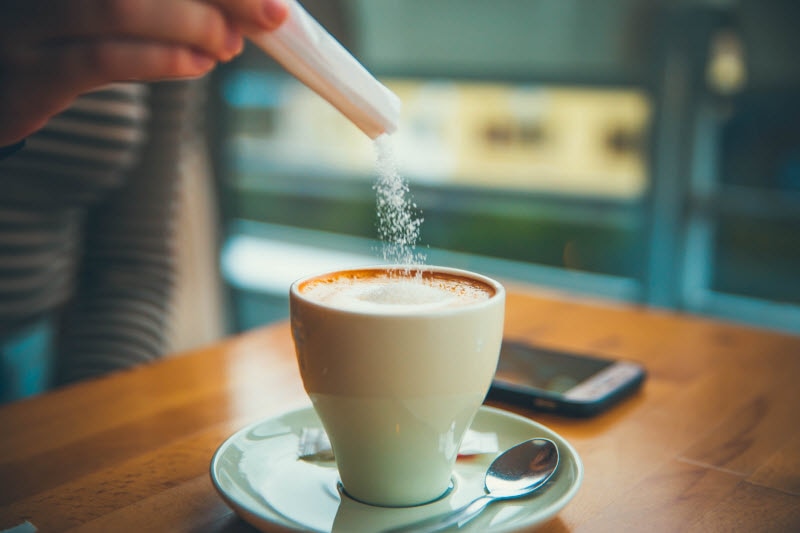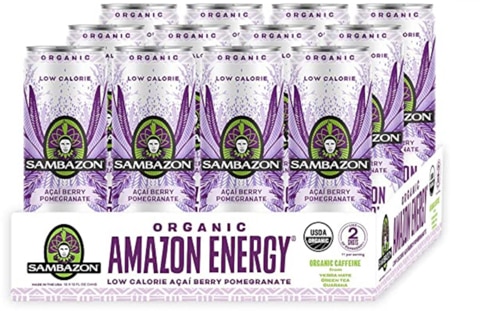[vc_row][vc_column][vc_column_text]The World Health Organization has proclaimed aspartame is a possible cancer risk for humans — a move that raises questions about whether to use the artificial sweetener or products containing it. However, some experts dispute this assertion and insist aspartame remains safe to consume at recommended levels.

The International Agency for Research on Cancer at the World Health Organization (WHO) cites “limited evidence” to go as far as declaring that aspartame causes cancer in humans. But it does warn that aspartame
might present a cancer risk, based on a review of three studies of humans that tied consumption of beverages with artificial sweeteners to a higher incidence of liver cancer.
In the cancer agency’s July 14, 2023, announcement, the Joint Expert Committee on Food Additives — affiliated with WHO and the United Nations — said it concluded there was no reason to change its stance on the suggested daily intake of aspartame. That recommendation is 40 milligrams of aspartame for every 2.2 pounds of a person’s weight.
The joint committee offers the following example of how its recommendation might play out.
Let’s say a can of diet soda contains 200 or 300 milligrams of aspartame. An adult weighing close to 155 pounds would need to consume roughly nine to 14 cans of this soda a day to exceed the suggested daily intake of aspartame, assuming no other aspartame was consumed.
A WHO official suggests that people who consume lots of aspartame should look at swapping diet soda for water or other unsweetened beverages,
according to The New York Times.
For its part, the
U.S. Food and Drug Administration (FDA) disagrees with the cancer agency’s branding of aspartame as a possible carcinogen.
“Aspartame is one of the most studied food additives in the human food supply,” the FDA says. “FDA scientists do not have safety concerns when aspartame is used under the approved conditions.”
Should you continue using aspartame?
Since the 1980s, aspartame has been marketed as an artificial sweetener under brand names like Equal, NutraSweet and Sugar Twin. It can found in a wide range of products, such as diet soda, ice cream, chewing gum, yogurt, toothpaste, cough drops and
chewable vitamins.
Despite the WHO warning, a number of experts believe aspartame is still safe to consume. Not everyone buys into that, though.
Blanca Garcia, a registered dietitian nutritionist in Southern California, says she often recommends that clients avoid aspartame and other artificial sweeteners altogether. Why? Because you “can easily surpass” the recommended daily intake of artificial sweeteners because their found in so many everyday foods, she says.
So, what are the alternatives?
Garcia suggests drinking black coffee, for instance, or stirring just one or two teaspoons of sugar into a cup of coffee. You might also swap artificial sweeteners or sugar for natural sweeteners like
agave and
honey.
Overall, Garcia believes we need to change our mindset about artificial sweeteners.
“It’s still a food product that is not naturally found in nature,” she says, “and is unfortunately found in all types of
processed foods.”
Kimberly Gomer, a registered dietitian nutritionist in South Florida, says that we ideally should consume whole foods in their natural state without adding sugar or other sweeteners (artificial or not).
“In terms of artificial sweeteners — any of them — less is more. The less consumed, the better it is for health,” Gomer says.
But she believes the use of aspartame and other artificial sweeteners should be approached on a case-by-case basis. Gomer says some people may need to replace sugar, honey, agave or other natural sweeteners with
artificial sweeteners due to diabetes, hypoglycemia or other sugar-affected conditions.
“We need to understand what we are truly dealing with and look past the scare factor,” Gower says.
What does science tell us about aspartame?
The WHO’s cancer research agency and the food additives committee performed separate reviews to gauge the health risks of aspartame, including its potential to be a cancer-causing hazard. This is the cancer agency’s first analysis of aspartame and the third from the food additives committee.
“The assessments of aspartame have indicated that, while safety is not a major concern at the doses which are commonly used, potential effects have been described that need to be investigated by more and better studies,” says Dr. Francesco Branca, WHO’s director of nutrition and food safety.
Dr. Moez Sanaa, WHO’s head of standards and scientific advice on food and nutrition, notes that the Joint Expert Committee on Food Additives weighed evidence on the human cancer risks related to aspartame but determined the link between the two was “not convincing.”
The two evaluations were based on scientific data from sources such as peer-reviewed papers, governmental reports and regulatory studies.
The
American Cancer Society concludes that the WHO agency’s aspartame statement offers a chance to reflect on the use of aspartame as well as the consumption of known carcinogens, including processed meat. In addition, the nonprofit group says it supports further research into aspartame and other artificial sweeteners.
Makers of artificial sweeteners speak out on aspartame
Once WHO’s cancer agency released its warning, trade groups representing makers of artificial sweeteners rallied to the defense of aspartame.
One of those trade groups, the
Calorie Control Council, pointed out that more than 90 scientific and regulatory agencies have confirmed the safety of aspartame. Dr. Keith Ayoob, a scientific adviser for the council, says the cancer agency’s statement was perplexing “and quite contrary to the credible evidence.”
The
International Sweeteners Association noted that the cancer agency’s low-level classification of aspartame as a possible carcinogen puts it in the same category as kimchi and other pickled vegetables. The cancer agency “would be the first to say that they don’t suggest people should stop using kimchi at meals,” the sweeteners association says.
WHO’s classification system for carcinogens comprises four levels: non-carcinogenic, possibly carcinogenic (the level where aspartame now sits), probably carcinogenic and carcinogenic.
The
American Beverage Association, which represents makers of non-alcoholic drinks, also chimed in. “People all around the world can be confident in consuming food and beverages with aspartame,” says the association’s interim president, Kevin Keane.[/vc_column_text][/vc_column][/vc_row][vc_row][vc_column][vc_text_separator title="Featured Products" border_width="2"][vc_row_inner equal_height="yes" content_placement="middle" gap="35"][vc_column_inner width="1/3"][vc_single_image image="167841" img_size="full" alignment="center" onclick="custom_link" img_link_target="_blank" css=".vc_custom_1689627120069{padding-right: 7% !important;padding-left: 7% !important;}" link="https://www.vitacost.com/zevia-zero-calorie-soda-caffeine-free"][/vc_column_inner][vc_column_inner width="1/3"][vc_single_image image="167839" img_size="full" alignment="center" onclick="custom_link" img_link_target="_blank" css=".vc_custom_1689627140223{padding-right: 7% !important;padding-left: 7% !important;}" link="https://www.vitacost.com/madhava-organic-agave-five"][/vc_column_inner][vc_column_inner width="1/3"][vc_single_image image="167840" img_size="full" alignment="center" onclick="custom_link" img_link_target="_blank" css=".vc_custom_1689627158756{padding-right: 7% !important;padding-left: 7% !important;}" link="https://www.vitacost.com/honey-gardens-honey-lemon-syrup"][/vc_column_inner][/vc_row_inner][/vc_column][/vc_row]
 The International Agency for Research on Cancer at the World Health Organization (WHO) cites “limited evidence” to go as far as declaring that aspartame causes cancer in humans. But it does warn that aspartame might present a cancer risk, based on a review of three studies of humans that tied consumption of beverages with artificial sweeteners to a higher incidence of liver cancer.
In the cancer agency’s July 14, 2023, announcement, the Joint Expert Committee on Food Additives — affiliated with WHO and the United Nations — said it concluded there was no reason to change its stance on the suggested daily intake of aspartame. That recommendation is 40 milligrams of aspartame for every 2.2 pounds of a person’s weight.
The joint committee offers the following example of how its recommendation might play out.
Let’s say a can of diet soda contains 200 or 300 milligrams of aspartame. An adult weighing close to 155 pounds would need to consume roughly nine to 14 cans of this soda a day to exceed the suggested daily intake of aspartame, assuming no other aspartame was consumed.
A WHO official suggests that people who consume lots of aspartame should look at swapping diet soda for water or other unsweetened beverages, according to The New York Times.
For its part, the U.S. Food and Drug Administration (FDA) disagrees with the cancer agency’s branding of aspartame as a possible carcinogen.
“Aspartame is one of the most studied food additives in the human food supply,” the FDA says. “FDA scientists do not have safety concerns when aspartame is used under the approved conditions.”
The International Agency for Research on Cancer at the World Health Organization (WHO) cites “limited evidence” to go as far as declaring that aspartame causes cancer in humans. But it does warn that aspartame might present a cancer risk, based on a review of three studies of humans that tied consumption of beverages with artificial sweeteners to a higher incidence of liver cancer.
In the cancer agency’s July 14, 2023, announcement, the Joint Expert Committee on Food Additives — affiliated with WHO and the United Nations — said it concluded there was no reason to change its stance on the suggested daily intake of aspartame. That recommendation is 40 milligrams of aspartame for every 2.2 pounds of a person’s weight.
The joint committee offers the following example of how its recommendation might play out.
Let’s say a can of diet soda contains 200 or 300 milligrams of aspartame. An adult weighing close to 155 pounds would need to consume roughly nine to 14 cans of this soda a day to exceed the suggested daily intake of aspartame, assuming no other aspartame was consumed.
A WHO official suggests that people who consume lots of aspartame should look at swapping diet soda for water or other unsweetened beverages, according to The New York Times.
For its part, the U.S. Food and Drug Administration (FDA) disagrees with the cancer agency’s branding of aspartame as a possible carcinogen.
“Aspartame is one of the most studied food additives in the human food supply,” the FDA says. “FDA scientists do not have safety concerns when aspartame is used under the approved conditions.”



